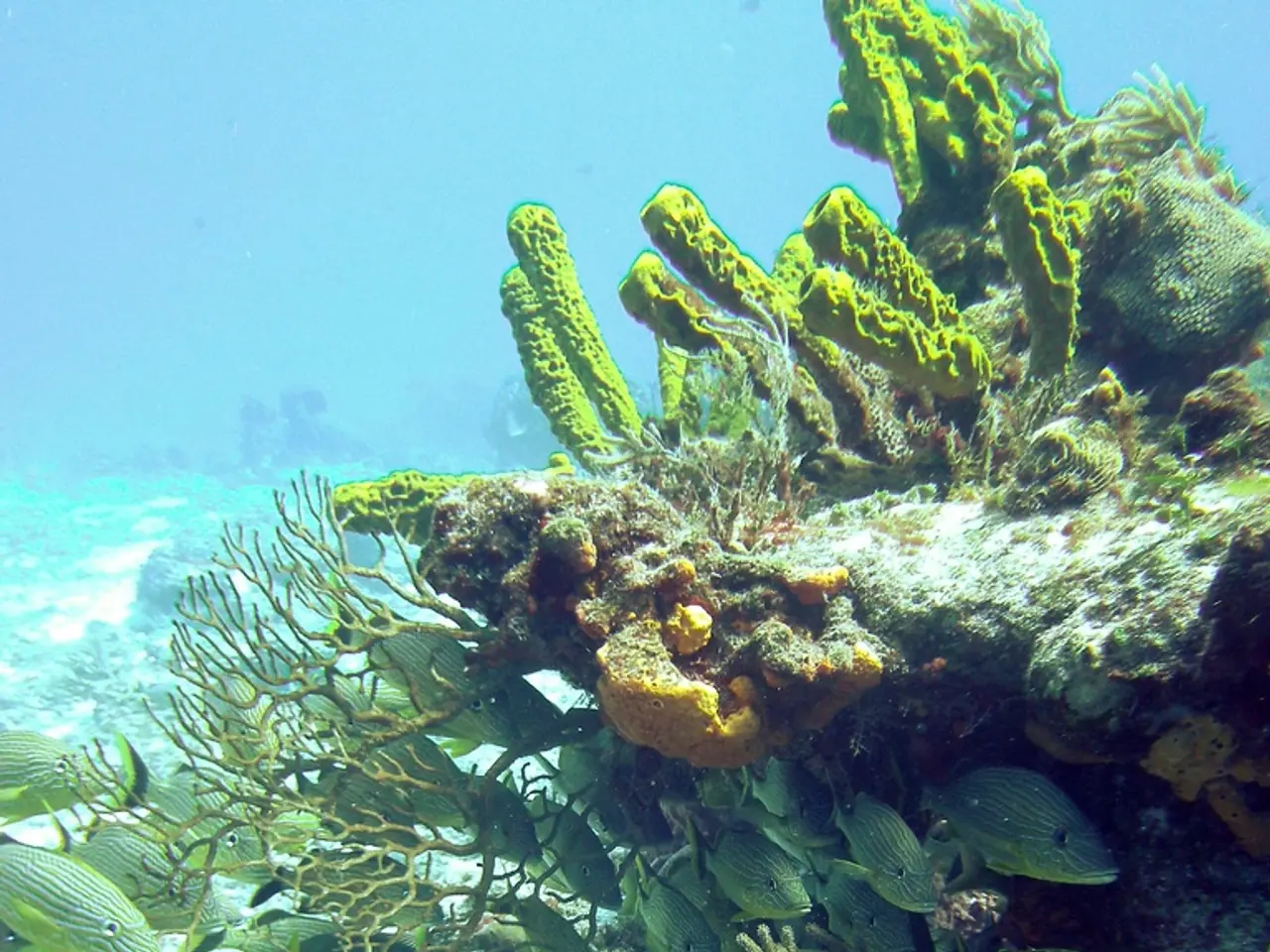Deep Sea Mining: A Contentious Issue in International Waters
Exploring the Consequence of Exploiting the Ocean Floor for Emerging Technologies?
Deep sea mining, a practice that involves extracting minerals from the ocean floor, has become a point of contention as nations scramble to secure resources for the rapidly expanding electric vehicle (EV) and renewable energy sectors. This article explores the current legal status of deep sea mining, the Trump Administration's plans, and the role of the National Oceanic and Atmospheric Administration (NOAA) in regulating this controversial activity.
The Legal Landscape
Deep sea mining is primarily governed by the United Nations Convention on the Law of the Sea (UNCLOS), a treaty that sets out the legal framework for activities in the oceans and seas beyond national jurisdictions. The seabed area beyond national jurisdictions and its resources are considered the "common heritage of mankind," meaning they cannot be claimed, appropriated, or owned by any state or person[1].
The International Seabed Authority (ISA), an independent organization, is the sole entity authorized to permit mining activities in these areas. The ISA is responsible for ensuring that such activities are conducted in a manner that protects marine life and promotes equitable sharing of benefits, with special considerations for developing nations[1]. However, the ISA cannot issue permits until it finalizes its Mining Code, a set of rules and regulations for deep sea mining that prioritizes environmental protection and equitable benefit sharing[1].
The Trump Administration's Plans
In a bid to expedite deep sea mining, particularly in international waters, the Trump Administration issued an executive order titled "Unleashing America's Offshore Critical Minerals and Resources" on April 24, 2025. This order aims to accelerate the review and issuance of seabed mineral exploration licenses and commercial recovery permits under the Deep Seabed Hard Mineral Resources Act (DSHMRA)[2][5].
This order raises concerns about potential unilateral action that could violate international law, as the U.S. is not a signatory to UNCLOS[2][5]. Nearly 40 states have expressed support for the ISA's stance that any mining in international waters must be conducted under ISA supervision to comply with international law[5].
NOAA's Role and Proposed Changes
In response to the growing demand for deep sea mining, the National Oceanic and Atmospheric Administration (NOAA) has proposed changes to its deep seabed mining regulations. These changes include a consolidated licensing and permitting procedure that allows applicants to simultaneously apply for both exploration licenses and commercial recovery permits[3].
This proposed framework aims to reduce administrative delays and streamline the process. However, the international community has expressed concern over the potential for unilateral actions that could violate international law.
The Deep Sea: Earth's Last Frontier
The deep sea, a vast and vulnerable part of our world, is home to numerous ecosystems and thousands of species, many of which are yet to be discovered[4]. Mining these nodules would destroy a community of deep sea creatures that live on the nodules and could have unforeseen consequences for the delicate balance of the deep sea ecosystem.
As we continue to explore the depths of the ocean, it is crucial that we do so responsibly, adhering to established international frameworks to ensure the protection of this precious and shared global resource.
- United Nations Convention on the Law of the Sea
- Unleashing America's Offshore Critical Minerals and Resources
- NOAA's Proposed Changes to Deep-Sea Mining Regulations
- Deep Sea: Earth's Last Frontier
- The debate surrounding deep sea mining extends to the realm of environmental-science, with concerns about its impact on the deep sea's unique ecosystems and diverse species.
- As the expansion of electric vehicles relies on technology and the renewable energy sector, the podcast series "Climate-Change Conversations" has dedicated episodes to discussing the ethical and ecological implications of deep sea mining.
- In an effort to promote transparency and public engagement, the NOAA is planning to launch a newsletter focusing on updates about deep sea mining, its legal status, and its potential effects on space-and-astronomy, as well as other niche fields of science.
- To foster further discussion, a group of international researchers in the field of environmental-science has published a policy brief highlighting the need for stricter regulations on deep sea mining to prevent irreversible damage to our planet's oceans and preserve Earth's last frontier.




